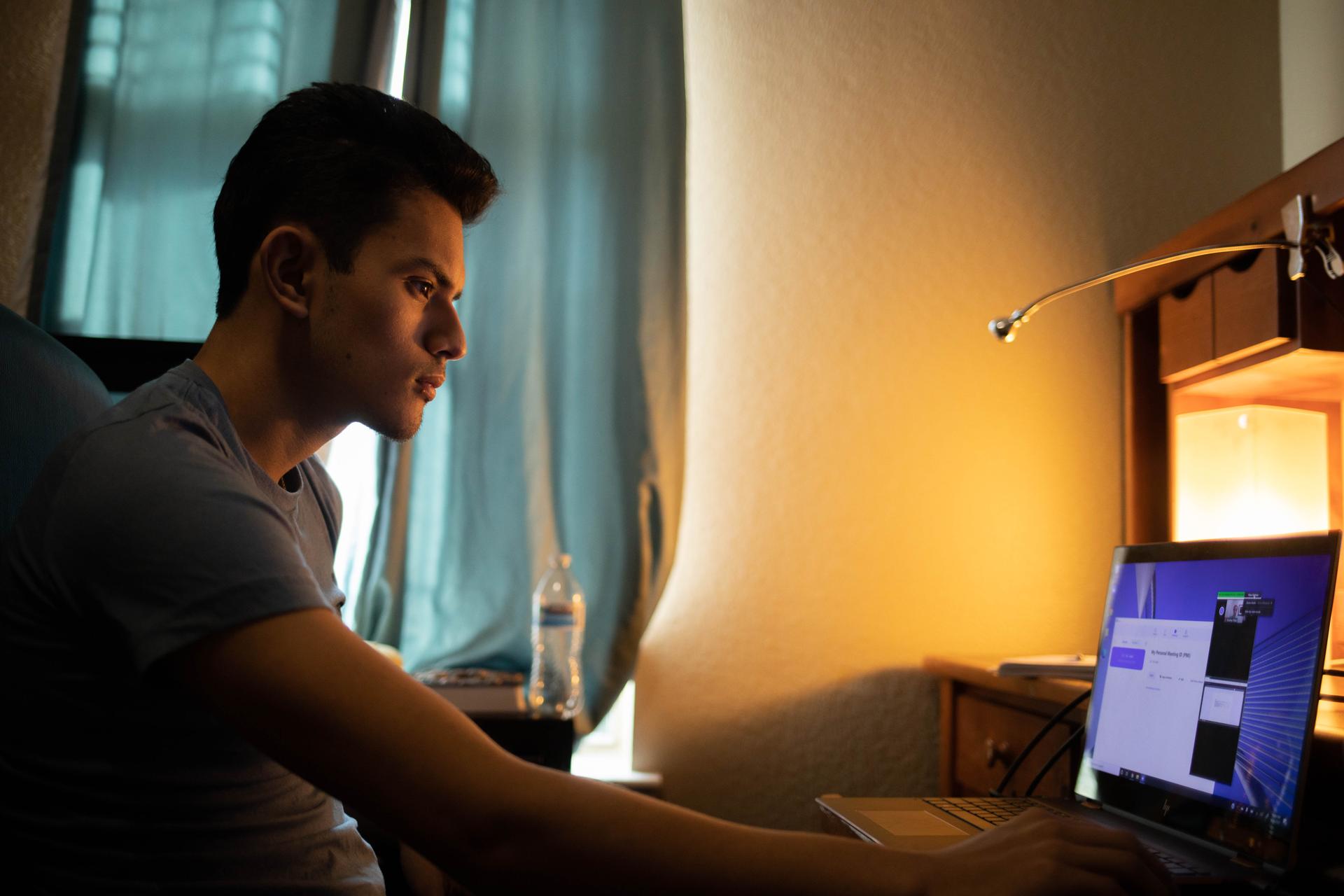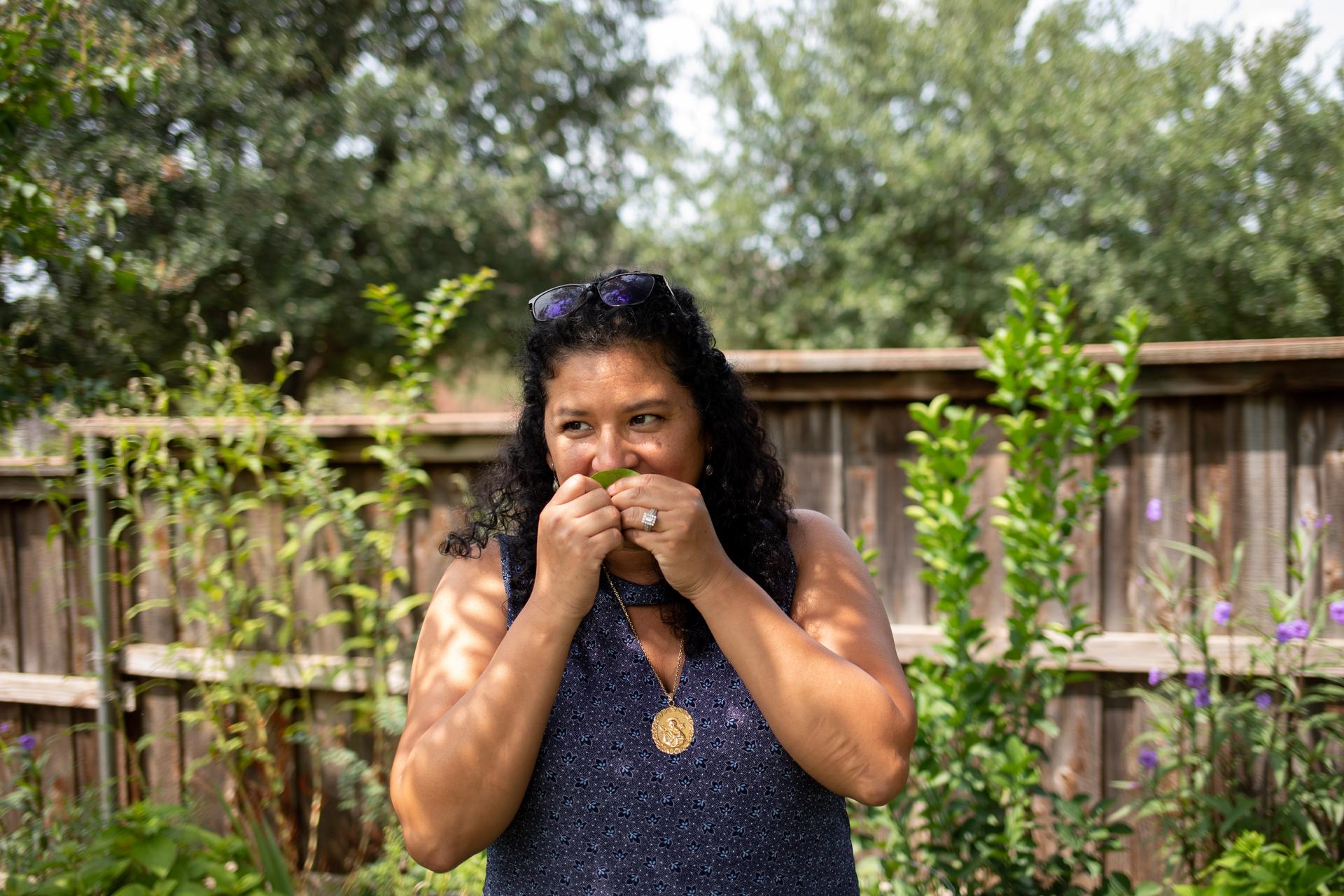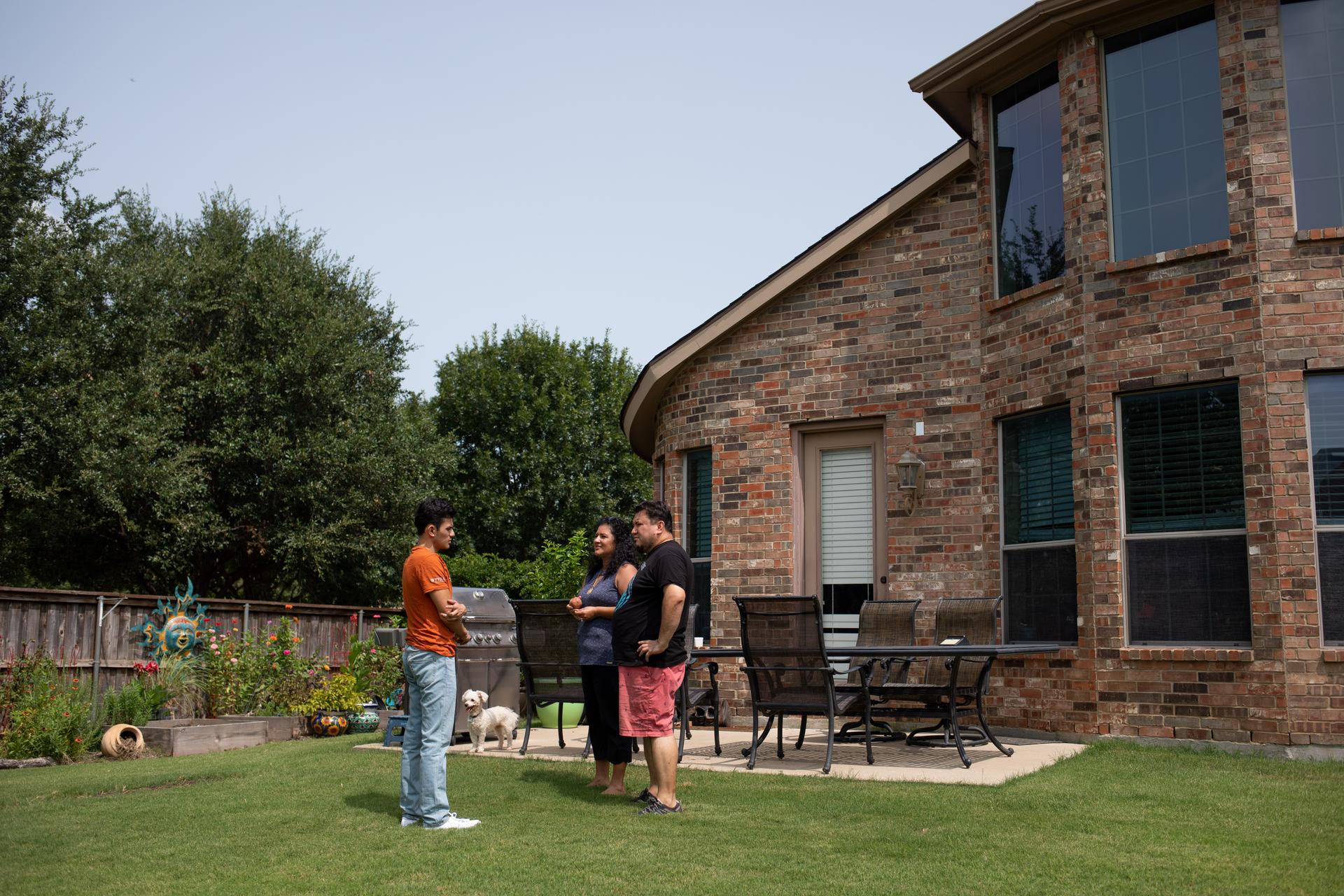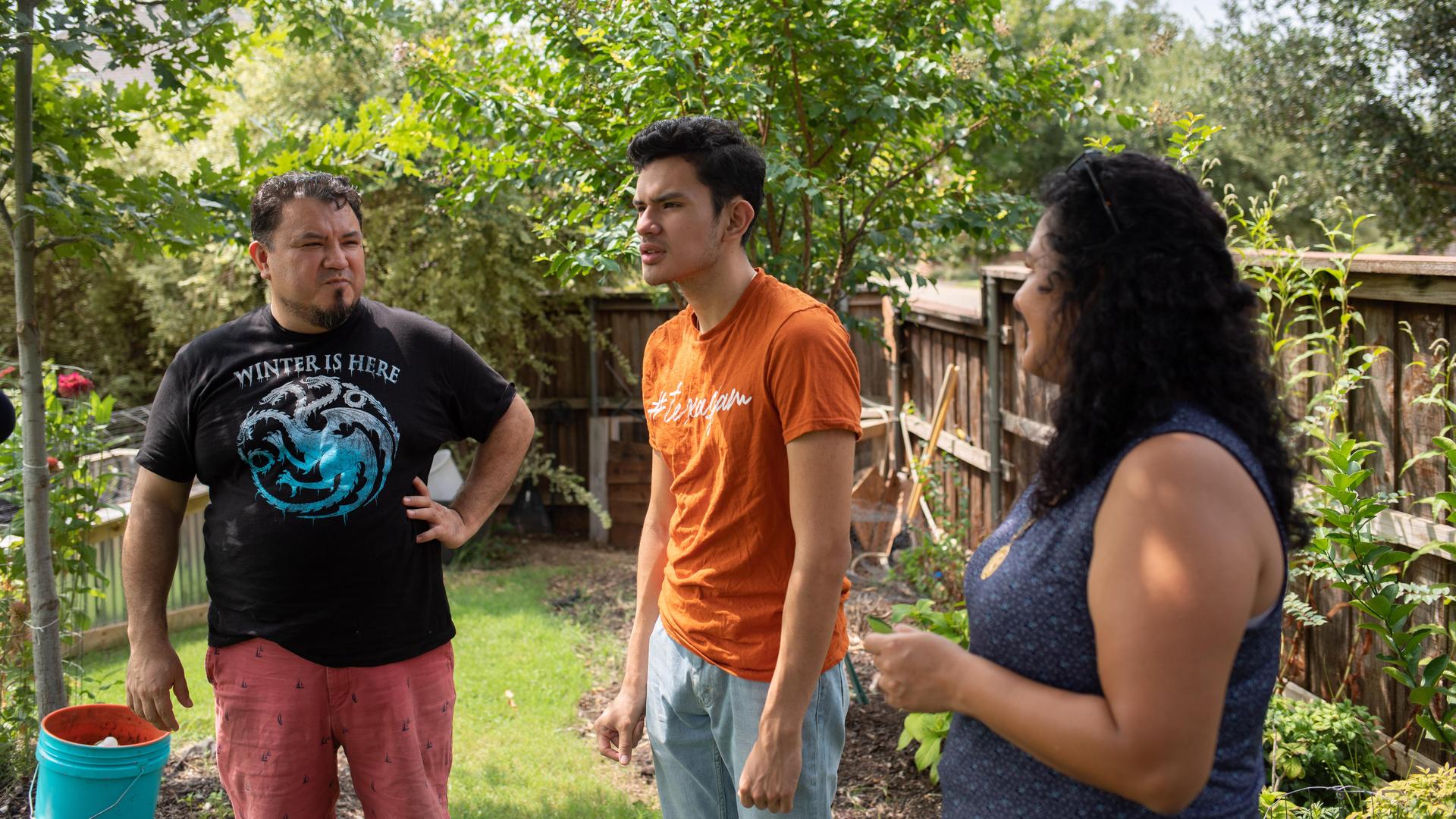For this young Latino, spending more time with family is an upside to the pandemic
Izcan Ordaz, center, has been spending more time with his parents Simon Ordaz, left, and Xochitl Ortiz during the pandemic.
This story is part of “Every 30 Seconds,” a collaborative public media reporting project tracing the young Latino electorate leading up to the 2020 presidential election and beyond.
The start to Izcan Ordaz’s freshman year of college at The University of Texas at Austin isn’t what he originally envisioned. The 18-year-old thought he would be on campus. Instead, he’s taking classes virtually from home.
Staying home also means spending more time with parents — and for him, that has been a silver lining of the coronavirus pandemic. Ordaz has been helping his father tend to the family’s garden in the backyard of their Fort Worth, Texas, home. His dad has taught him how to use a shovel and pickax. The younger Ordaz has also helped his dad carry bags of soil and build raised garden beds.
These moments have been an opportunity for father and son to bond. Ordaz has been learning more of his father’s story immigrating from Mexico to the US in the early 1990s. His father, Simon Ordaz, faced many challenges, such as not knowing English when he arrived in the US. He was 16 years old then, even younger than his son is now.
“If I’m this age coming to a new country [and] I don’t know English — I’m like, ‘How could I do that?’ It was just always so hard for me to imagine that for myself. But I always did that. It would get me up in the morning.”
“If I’m this age coming to a new country [and] I don’t know English — I’m like, ‘How could I do that?’” Izcan Ordaz said of his father. “It was just always so hard for me to imagine that for myself. But I always did that. It would get me up in the morning.”
Izcan Ordaz is part of a new generation of Latino voters who were born in the US, but whose parents or grandparents came from other countries. Their elder relatives’ immigration stories and experiences are passed down and can help shape their political views.
He pays attention to how President Donald Trump talks about immigrants and his policies on immigration. Still, he considers himself more conservative than his parents. Before the Texas primary election, he considered voting for former Democratic presidential candidate and former New York City Mayor Mike Bloomberg.
Now, he plans to vote for former Vice President Joe Biden. But he said he still has concerns about how Biden would handle the economy.
Related: This young Latino voter worries about prom, graduation — and the economy

The family garden is especially important for Simon Ordaz, who grew up in a rural town in Mexico where everyone knew how to work the fields.
“I think it was at age 9, you know, all my classmates, they would finish school and then they went to work in the field helping out,” he said. “So, everyone knew how to use a shovel and how to do all this physical work.”
Over the past few months of the pandemic, he’s planted more than two dozen vegetables, herbs and flowers. That includes Mexican zinnias — “they’re just a flower machine … producing flowers the entire season,” he said — along with carrots, lemongrass and rosemary.
For Simon Ordaz and his wife, Xochitl Ortiz, the garden is not only a way to eat healthier, but it’s also a reminder of their cultural roots and visits to Mexico. Ortiz was born and raised in Chicago, but her parents are from Mexico.

Ortiz points to a couple of fruit trees.
“Both of my grandmas had a lime tree,” she said. “None of them had the pomegranate tree, but those are two things that … I have that connection, that memory.”
Izcan Ordaz said hearing his parents’ stories is humbling — especially when he considers how far his father has come.
“It was always something to keep me in check, to get me back to the books if I saw myself slipping up or going on my phone,” Izcan Ordaz said. “And it was something that would motivate me. [If] I don’t want to get up. I’m like, ‘Hey, it doesn’t matter. Look at what he did.’”
While growing up in Mexico, the elder Ordaz says his biggest dream was to study and become a working professional. But he couldn’t afford to pay for college, so he decided to move to the US.
“I saw my dad coming from humble beginnings. He was a very smart person, but he wasn’t able to find a lot of opportunities because he did not have an education.”
“I saw my dad coming from humble beginnings,” Izcan Ordaz said. “He was a very smart person, but he wasn’t able to find a lot of opportunities because he did not have an education.”
Simon Ordaz worked as a busboy in restaurants and bars in the Chicago area. He’d finish his shift at 1 a.m. or 2 a.m., then wake up at 6 a.m. to catch a bus to go to high school.
“My shifts were, you know, 14 to 16 hours a day,” he said. “It was hard.”

In his first apartment, he lived with more than a dozen other men, all of whom were single and also from Mexico. Eventually, he made it to college and now works as an electrical engineer.
Izcan Ordaz heard these stories growing up. Sitting across the kitchen table one recent Saturday morning, he told his dad what that has meant to him.
“There’s a picture that I remember seeing when I was little. We had it out in the old house. It was right at the top of the stairs. You took me to the zoo and your eyes were all red,” the son said. “I didn’t realize it when I was young until I got older. Um … that’s when I realized that you … that you did it all for us.”
The younger Ordaz said he’s holding on to these life lessons — especially now, as he navigates college life during a pandemic with so much uncertainty ahead.
Our coverage reaches millions each week, but only a small fraction of listeners contribute to sustain our program. We still need 224 more people to donate $100 or $10/monthly to unlock our $67,000 match. Will you help us get there today?
